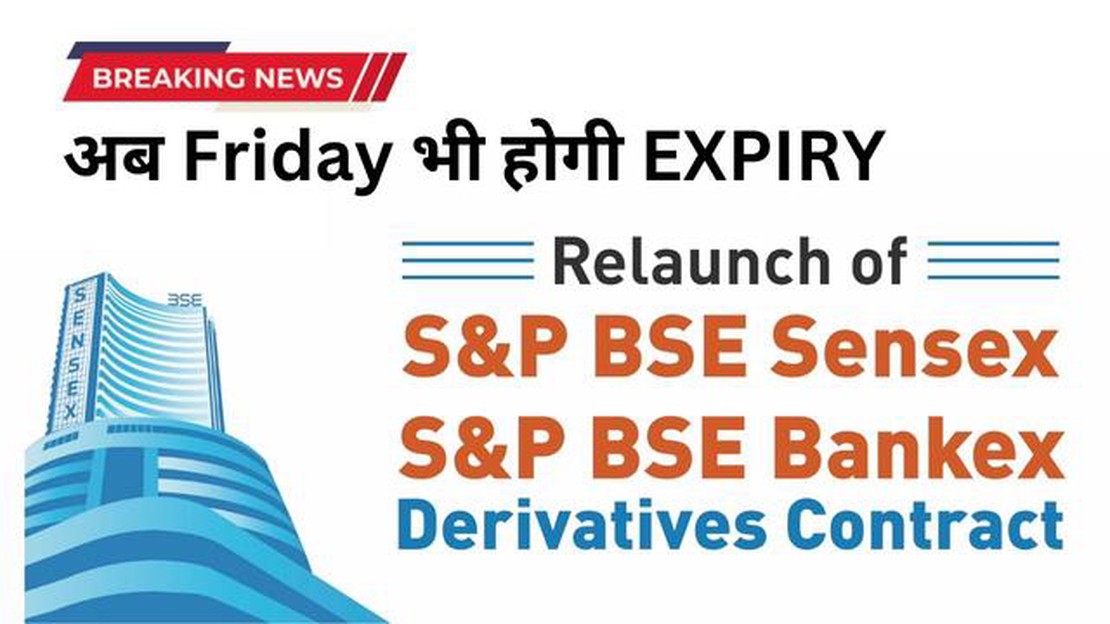How much is 0.01 lot of gold? Find out the value of 0.01 lot of gold here!
What is the value of 0.01 lot of gold? Have you ever wondered how much 0.01 lot of gold is worth? Gold has been a valuable commodity for centuries, …
Read Article
Options trading is a popular form of investment that allows traders to speculate on the future price movements of a wide range of financial assets. The Bombay Stock Exchange (BSE) is one of the leading stock exchanges in India that offers options trading as a means for investors to diversify their portfolios and potentially earn profits.
What is options trading?
Options trading is a derivative trading strategy where traders have the right, but not the obligation, to buy or sell a specific asset at a predetermined price within a specified period. These assets can include stocks, indices, commodities, or currencies. Options trading allows investors to leverage their capital and potentially earn significant profits, even with small investments.
Benefits of options trading on BSE
Options trading on BSE offers several benefits for investors. First and foremost, it provides an opportunity to diversify investment portfolios by trading a wide range of assets. Additionally, options trading allows investors to hedge their positions, protecting themselves against potential losses in volatile market conditions. Furthermore, BSE provides a transparent and regulated platform for options trading, ensuring the integrity and fairness of the market.
Strategies for options trading on BSE
There are various strategies that traders can employ when trading options on BSE. Some common strategies include buying call options to profit from an increase in the underlying asset’s price, buying put options to profit from a decrease in the underlying asset’s price, and selling covered call options to generate income from existing holdings. It is important for traders to thoroughly research and understand these strategies before engaging in options trading.
Overall, options trading on BSE provides investors with a versatile and potentially lucrative investment opportunity. However, it is essential to have a sound understanding of the risks involved and to conduct thorough research before entering the options market.
Options are financial instruments that give investors the right, but not the obligation, to buy or sell an underlying asset at a specific price, on or before a certain date. They are commonly traded on exchanges like the Bombay Stock Exchange (BSE).
Options on BSE provide investors with flexibility and versatility in their trading strategies. They are widely used by traders to hedge against price fluctuations, to speculate on future price movements, and to generate income through options writing.
There are two types of options: call options and put options. A call option gives the holder the right to buy an underlying asset, while a put option gives the holder the right to sell an underlying asset. The price at which the option can be exercised is called the strike price.
Options on BSE have a standardized contract size and expiration date. The contract size represents the quantity of the underlying asset that the option controls, while the expiration date is the last date on which the option can be exercised.
Investors can buy or sell options on BSE through a trading account with a registered broker. When buying options, investors pay a premium upfront, which is the price of the option. If the option expires without being exercised, the buyer loses the premium paid.
Selling options, on the other hand, involves receiving the premium upfront. However, if the option is exercised, the seller must deliver the underlying asset (in the case of a call option) or buy the underlying asset (in the case of a put option) at the strike price.
Read Also: Is Forex Trading Legal in Qatar? Everything You Need to Know
Options on BSE can be settled in two ways: cash settlement and physical settlement. Cash settlement involves settling the option in cash, while physical settlement involves delivering or receiving the underlying asset. The settlement method is determined by the exchange based on the underlying asset.
It is important to understand the risks associated with options trading on BSE. Options are leveraged instruments, which means that a small price movement in the underlying asset can result in a significant gain or loss in the option. It is essential to have a thorough understanding of the market and the underlying asset before trading options.
In conclusion, options provide investors with a flexible and versatile instrument for trading on the BSE. Understanding the basics of options, such as call and put options, strike price, contract size, expiration date, and settlement methods, is crucial for successful options trading. It is recommended to consult with a financial advisor or broker before engaging in options trading.
Options trading on the Bombay Stock Exchange (BSE) offers several benefits to traders and investors. Here are some of the key advantages of options trading on BSE:
Read Also: Is it OK to Trade Forex on Friday? Exploring the Pros and Cons3. Leverage: Options trading allows you to control a large amount of underlying securities with a relatively small investment. This concept of leverage allows you to amplify the potential returns on your investment. However, it is important to remember that leverage can also amplify your losses, so it must be used with caution. 4. Hedging: Options trading provides an excellent tool for hedging your portfolio. By using options contracts, you can offset potential losses in your portfolio by creating a strategy that limits downside risk. This enables you to protect your investments against adverse market movements. 5. Income generation: Options trading can be a source of regular income for investors. By writing options contracts, you can receive premiums upfront, which can provide a steady income stream. This income can be especially beneficial for those looking to supplement their regular income or for those who prefer a more active approach to generating returns.
 6. Versatility: Options trading allows you to take advantage of various trading strategies. Whether you are bullish, bearish, or neutral on a particular stock or index, options provide multiple ways to profit from your perspective. This versatility makes options trading a valuable tool for traders and investors.
6. Versatility: Options trading allows you to take advantage of various trading strategies. Whether you are bullish, bearish, or neutral on a particular stock or index, options provide multiple ways to profit from your perspective. This versatility makes options trading a valuable tool for traders and investors.
Overall, options trading on BSE offers a range of benefits that can enhance your investment strategy. By understanding and utilizing the advantages of options trading, you can potentially maximize your profits while minimizing your risk.
Options trading is a type of investment strategy that involves buying and selling options contracts. An option is a financial instrument that gives the holder the right, but not the obligation, to buy or sell an underlying asset at a predetermined price within a specific time period.
Options trading on the BSE works through a centralized exchange where buyers and sellers can trade options contracts. Traders can choose from a variety of options contracts with different strike prices and expiration dates. They can either buy or sell these contracts to speculate on the future price movement of the underlying asset.
Options trading on the BSE offers several benefits, including the ability to hedge against price fluctuations, the potential for higher returns with limited risks, and the opportunity to profit from both upward and downward price movements. Options trading also provides liquidity to the market and allows for flexible investment strategies.
Some key terms to know in options trading include strike price, which is the price at which the underlying asset can be bought or sold; expiration date, which is the date when the option contract expires; premium, which is the price paid to buy an option contract; and call option, which gives the holder the right to buy the underlying asset, and put option, which gives the holder the right to sell the underlying asset.
There are several strategies for options trading on the BSE, including buying call options to speculate on an increase in the price of the underlying asset, buying put options to speculate on a decrease in the price of the underlying asset, selling covered call options to generate income from an existing stock position, and using options spreads to limit risk and potential returns.
Options trading is a form of investment that allows traders to buy or sell a security at a predetermined price within a specific time frame. It gives investors the opportunity to profit from the price movements of the underlying asset without actually owning it.
On the BSE, options trading works by offering investors the ability to buy or sell options contracts. These contracts are based on specific stocks or indexes and give traders the right, but not the obligation, to buy or sell the underlying asset at a predetermined price within a specified time frame. Traders can profit from the price movements of the underlying asset by buying or selling these options contracts.
What is the value of 0.01 lot of gold? Have you ever wondered how much 0.01 lot of gold is worth? Gold has been a valuable commodity for centuries, …
Read ArticleChoosing the Best EMA Period for Intraday Trading When it comes to intraday trading, one of the key indicators used by traders is the Exponential …
Read ArticleExchange Rate: Dollar to Euro When it comes to international currency exchange, the exchange rate between the US dollar and the euro is one of the …
Read ArticleUnderstanding the Purpose and Function of Eze Software Eze software is a leading provider of investment management technology and services. They offer …
Read ArticleUnderstanding the Generalized Linear Autoregressive Moving Average Model The Generalized Linear Autoregressive Moving Average (GLARMA) model is a …
Read ArticleIs a CFD an OTC derivative? Contracts for Difference (CFDs) are a type of financial instrument that allows traders to speculate on the price movements …
Read Article